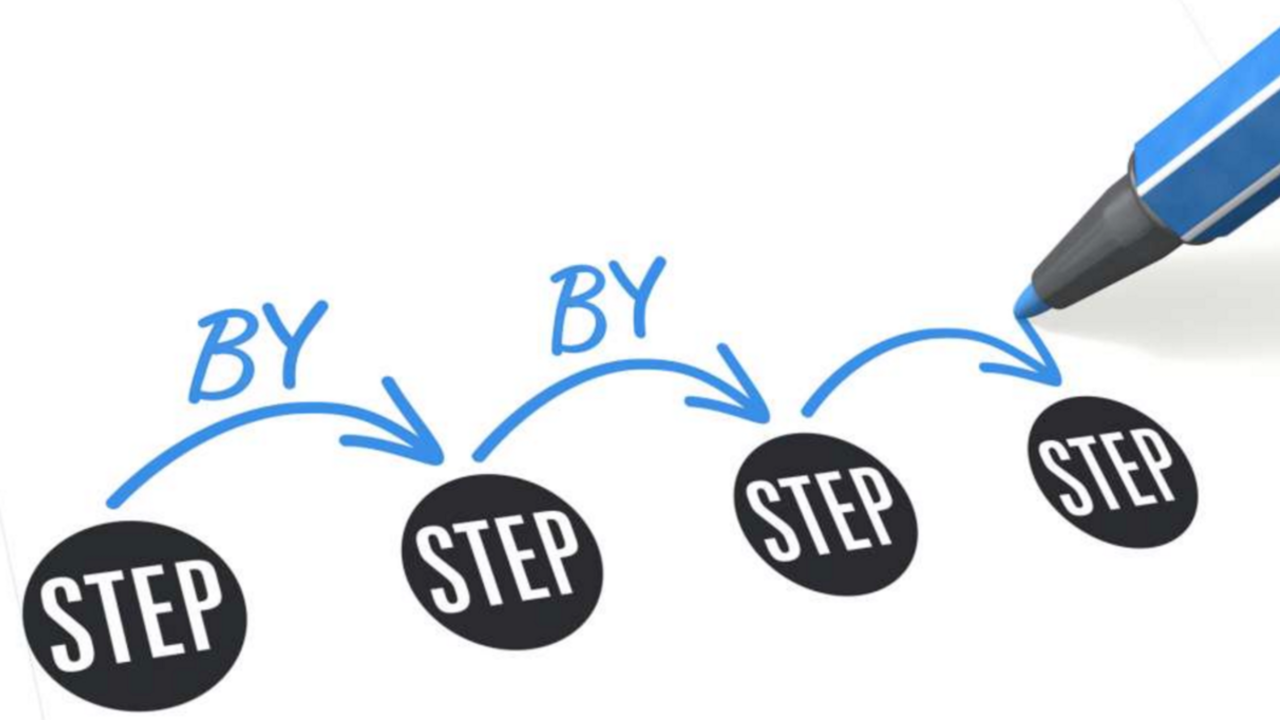How to Structure an HL Business Management Internal Assessment

This page gives details for the IA for students graduating in November 2023 or earlier. Click here for the new IB Business IA details --which you should follow if you're graduating from May 2024 or later.
Here is a layout you can follow for your HL Business Management IA, for November 2023 or earlier
(If you're looking for the SL Business IA structure, for November 2023 or earlier, that one is right here).
The Proposal and the IA should be included in a single document, using double-spaced Arial, sized 12 font.
Please remember to include all of your sources (preferably using MLA) as you go. This goes for every fact that you include or any opinion that you write, which was informed by something you read. Citing your sources is VERY important. Be careful with it.
Pre-Research Proposal Material
Title page
Include:
- Your Research Question (Here is more help for members refining your question).
- Intended Audience (i.e. To Company X)
- The IB Number (Something in the ...
Evaluation in IB Business

Sometim es (normally in 8-mark questions) you will be asked to evaluate. This is about going beyond the insights you have made from doing your analysis (your Dr Tests). But let's make sure you are clear on the difference between analysis and evaluation. By analyzing in Business we mean giving your Definitions, Explanations, Examples and Development (making sure you have fully answered the question) (Doing the 'DEED'). And then, after you analysis is done, you go on to evaluate, to make sense of it for the reader. You are telling us, in clear terms, what we should think about the situation.
es (normally in 8-mark questions) you will be asked to evaluate. This is about going beyond the insights you have made from doing your analysis (your Dr Tests). But let's make sure you are clear on the difference between analysis and evaluation. By analyzing in Business we mean giving your Definitions, Explanations, Examples and Development (making sure you have fully answered the question) (Doing the 'DEED'). And then, after you analysis is done, you go on to evaluate, to make sense of it for the reader. You are telling us, in clear terms, what we should think about the situation.
This is a bit like Theory of Knowledge because you are not only showing that you can think about things using the course theories, but also showing that you can think about things in a complicated (or complex, or advanced) way. You can contrast the results of two ways of appraising an investment opportunity for example and tell us which insights are most important for this particular company.
B...
How to be a Successful Student


1 Ask questions when you don't understand something and when you do. All of my classes are about questioning what we know, how we know it and how we change (and our actions change) as a result of knowing. So if your teacher introduces something in class that you don't get, stop them. Clarify.
If someone else offers a point of view that makes no sense, ask for clarification. One way I can tell that you're truly progressing is by the kinds of questions you're asking.
2 Participate in class discussions. Silence may be golden in some settings, but not in my classroom. By speaking up during class discussions two good things happen: I get to know you better and I get to give you a correction --we get the chance to show you something you didn't realize already. You might be passionate about the subject, but silent passion doesn't help much in my grade book.
3 Be a little bit selfish. If you believe that your success at school is important to your future (and I hope you do) make sure you'...
The May 2017 ToK Essay Titles

If you are completing the IB Diploma Program in May 2017, the official Theory of Knowledge essay titles you’ll be working with have been released. I've made some step-by-step help videos and other downloadable resources to help you with your essay if you'd like.
Click the blue button below to get full access to these.
And we have ToK Essay Facebook groups. We have one group just for ToK students and another one just for ToK teachers. We'd love to see you in there. The following are the official prescribed titles for the May 2017 session of Theory of Knowledge essay.
Your essay can be up to 1600 words in length.
The May 2017 ToK Prescribed Essay Titles
1. “It is only knowledge produced with difficulty that we truly value.” To what extent do you agree with this statement?
2. “Facts are needed to establish theories but theories are needed to make sense of facts.” Discuss this statement with reference to two areas of knowledge.
3. Should key events in the historical developmen...
The JAM Structure for Business Management IA and EE Writing

The JAM structure is a simple, three-step framework you can use to improve the quality of your writing in IB Business Management.
JAM stands for Justification, Analysis and Mini-conclusion.
Since I first created this framework (way back in 2009) it's become very popular with IB schools around the world. It works really well because it helps you (and forces you) to do a couple of things that you wouldn't normally do, which can dramatically improve the effectiveness of your writing. It raises your grade because it forces you to show your thinking and mention why the tool or model is appropriate and then to also observe what the analysis has revealed.
Let's say you’ve chosen (as your IA question) to explore whether a restaurant should relocate from one shopping mall to another one. The second location is more popular, but also more expensive, so you'll need to analyze the opportunity in a few different ways.
In the weakest IAs and EEs the student seems to have decided their answer ...
Meeting The Economics IA Rubric Requirements

On this, the third of three posts to make sure you score full marks on your Economics Internal Assessments, I want to give you a detailed checklist you can use to check your own work. (Here is post one, Getting Started with your Econ IA and post two: the Econ IA Structure).
I have included what the IB says they expect for full marks, and translated that into actionable steps. If you do everything on the checklist your teacher will have to give you full marks.
This is up-to-date with the "new" IB Econ curriculum (first Assessment 2022).
A: Diagrams (3 marks)
IB Explanation: This criterion assesses the extent to which the student is able to construct and explain diagrams.
IB Expectations: Relevant, accurate and correctly labelled diagram(s) are included, with a full explanation.
Checklist (to get full marks):
Drawing the diagram:
-You have fully labelled your x and y-axis (See the Structure for this here).
-You’ve chosen the most appropriate diagram (the one that best explains ...
How to Get Full Marks On Your Business Internal Assessment

I have found that the biggest challenge my students are having, in terms of scoring the top marks in the Business IA, is related to their use of analytical tools.
(For a step-by-step explanation of everything you need to include in your Business IA, use this page.)
You have a Research Question and you’re trying to arrive at your answer. A very common mistake is that students do a lot of analysis, but they don’t connect it properly to the Research Question (RQ) or to their Answer (Ans).
I have wracked my brain to make this more straightforward and I’ve come up with the following diagram, which you can follow to make your IA analysis a more straightforward process. If you follow it, it should raise your performance in several aspects of the IA Business rubric.
By this point, you have chosen an appropriate RQ. if you aren’t sure about that, I recommend reading this article first (and follow the '4 tests' it advises to check your RQ). So now you know that you need to do a few things. ...
The 99 Best Economics Resources
IB Economics General Websites
- Welker’s Wikinomics - A website created by an IB economics teacher containing useful IB lecture notes as well as a blog
- Tutor2U - A resource for AS, A2 and IB economics revision
- Biz/ed - A general resource for learning economics, listed by topic.
- Essentials of Economics - Summaries, online quizzes and case studies relating to the textbook “Essentials of Economics”
- Economic Policy Debate - Is a place for online debates regarding current controversial ideas in economics. For IB Econ students, it’s a good place to review key concepts and evaluate.
- Vizala.com - Has a lot of great economics data. It's a database for country, demographic, social, and economic information.
Videos
- Khan academy has produced some great videos on Microeconomics, Macroeconomics, and current issues in Econ Recommended
- Some really good video lessons from EconClassroom.com
- Paj Holden's YouTube page is also full of great IB Econ-specific videos
- Econ Stories - A funny ra ...
How to Write Successful College Application Essays
 Your college application admission letter or essay is one of the most important documents you will ever write. I want to show you how to write yourself to the head of the pack.
Your college application admission letter or essay is one of the most important documents you will ever write. I want to show you how to write yourself to the head of the pack.
To do that I need to first explain to you the concept of Stump Speeches, which are often used by politicians. Regardless of the question a politician is asked they will try to answer it in a way that lets them talk about a few areas where they are strong. One guy will always come back to talk about cutting taxes. Another will always come back to talking about economic growth because they know, from their research, that when they talk about these specific things, people like them more.
I’m going to tell you what to say in your college admission letter (or college admission essay) so that the readers at Stanford or Yale will want to choose you over everyone else. The people who are going to be reading your letter want to see that you tick certain boxes. So you need to think about these people as your market. You...
How to Write Your Extended Essay (Getting Started)

Starting your Extended Essay is a big challenge.
The best advice I can give you is start early and choose your research question carefully. Starting early is a time-management aspect you'll have to figure out on your own. But I can help you a lot on the second part.
Coming up with an appropriate question is about 25% of the whole battle. Your supervisor can help you with this, but often they'll leave it to you.
And you’ll want to be very careful here. With the right question almost anything is possible. With the wrong question, you're setting yourself up to fail. Most students brainstorm possible ideas, ask for suggestions and read successful EE samples (which are often available in your high school library). But I want to help you to do better than the average student. The following 4 tests will help you make sure your RQ is top notch.
The Four Tests
A good research question (RQ) passes the following 4 tests:
#1 Is it the right scope?
Of course the question needs to be one that ...






